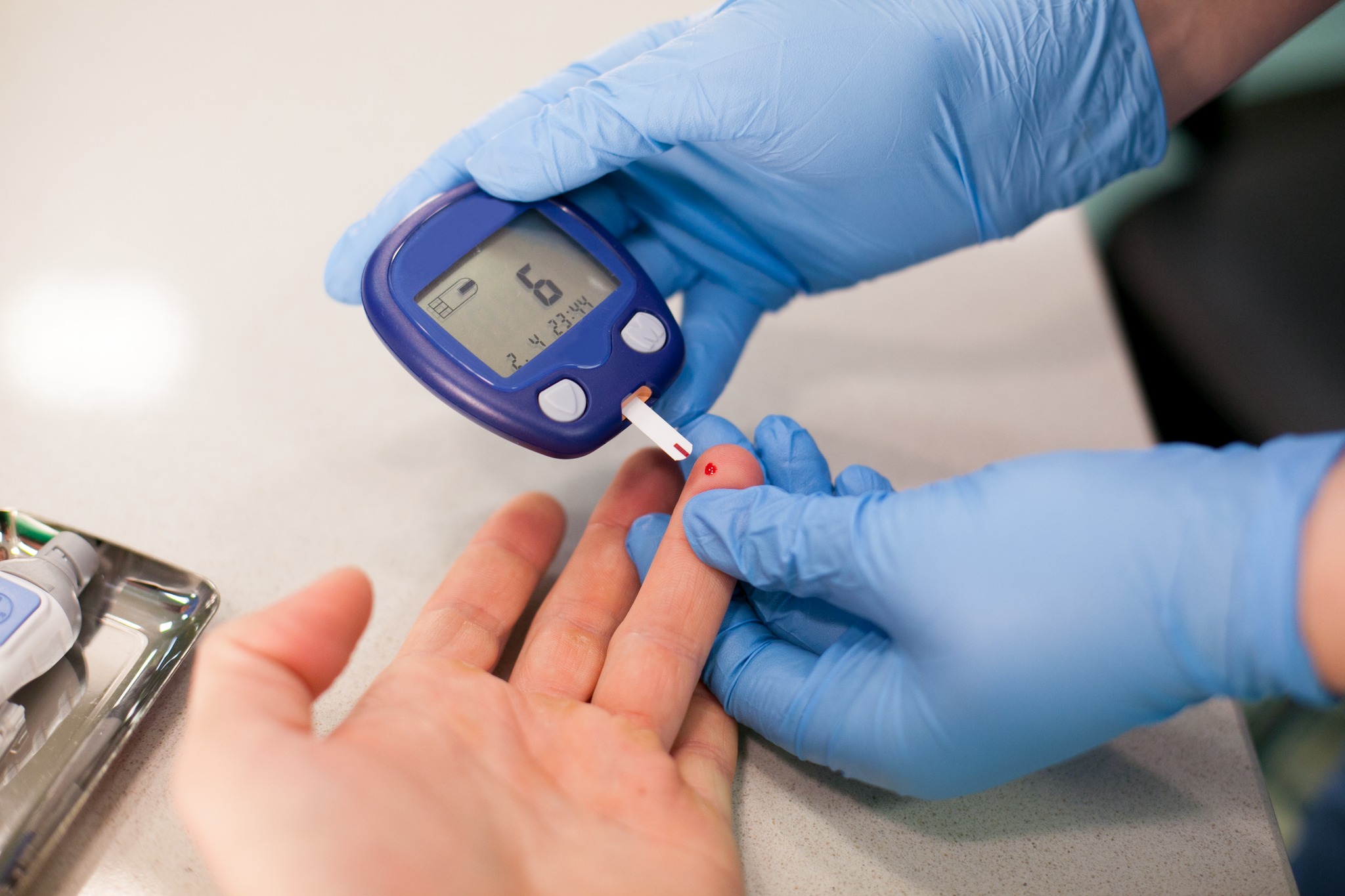Life & Health

As the World Diabetes Day is being observed around the globe, the World Health Organization has emphasised screening for diabetese risk, saying the starting point for living well with diabetes is early testing.
It has warned that “the longer a person lives with undiagnosed and untreated diabetes, the worse their health outcomes are likely to be”.
The warning comes amidst concerns that diabetes is emerging as an urban disease, mostly affecting people who don’t care about their health, particularly diet and lifestyle.
WHO describes diabetes as a chronic disease which occurs when the pancreas does not produce enough insulin or when the body cannot effectively use its insulin. This leads to increased glucose concentration in the blood (hyperglycaemia).
Two types of diabetes:
Type 1 diabetes (previously known as insulin-dependent or childhood-onset diabetes) is characterised by a lack of insulin production.
Type 2 diabetes (formerly called non-insulin-dependent or adult-onset diabetes) is caused by the body’s ineffective use of insulin. It often results from excess body weight and physical inactivity.
Gestational diabetes is hyperglycaemia that is first recognized during pregnancy.
Global health issue
In 2014, WHO says 8.5 per cent of adults aged 18 years and older had diabetes. In 2019, diabetes was the direct cause of 1.5 million deaths, and 4 per cent of all deaths due to diabetes occurred before the age of 70. Another 460 000 kidney disease deaths were caused by diabetes and raised blood glucose causes around 20% of cardiovascular deaths.
Between 2000 and 2019, there was a 3 per cent increase in age-standardised mortality rates from diabetes. In lower-middle-income countries, the mortality rate due to diabetes increased by 13 per cent.
WHO adds: “By contrast, the probability of dying from any one of the four main noncommunicable diseases (cardiovascular diseases, cancer, chronic respiratory diseases or diabetes) between the ages of 30 and 70 decreased by 22 per cent globally between 2000 and 2019.”
Read more information made available by WHO:
Health impact
Over time, diabetes can damage the heart, blood vessels, eyes, kidneys, and nerves.
• Adults with diabetes have a two- to three-fold increased risk of heart attacks and strokes.
• Combined with reduced blood flow, neuropathy (nerve damage) in the feet increases the chance of foot ulcers, infection and the eventual need for limb amputation.
• Diabetic retinopathy is an important cause of blindness due to long-term accumulated damage to the small blood vessels in the retina. Close to 1 million people are blind due to diabetes (3).
• Diabetes is among the leading causes of kidney failure (4).
• People with diabetes are more likely to have poor outcomes for several infectious diseases, including COVID-19.
Prevention
Lifestyle measures are effective in preventing or delaying the onset of type 2 diabetes. To help prevent type 2 diabetes and its complications, people should:
• achieve and maintain healthy body weight;
• be physically active – doing at least 30 minutes of regular, moderate-intensity activity on most days. More activity is required for weight control;
• eat a healthy diet, avoiding sugar and saturated fats; and
• avoid tobacco use – smoking increases the risk of diabetes and cardiovascular disease.
Early diagnosis can be accomplished through relatively inexpensive testing of blood glucose.
Treatment of diabetes involves diet and physical activity, along with lowering of blood glucose and the levels of other known risk factors that damage blood vessels. Tobacco use cessation is also important to avoid complications.
Interventions that are both cost-saving and feasible in low- and middle-income countries include:
• Blood glucose control, particularly in type 1 diabetes. People with type 1 diabetes require insulin, people with type 2 diabetes can be treated with oral medication but may also require insulin;
• Blood pressure control; and
• Foot care (patient self-care by maintaining foot hygiene; wearing appropriate footwear; seeking professional care for ulcer management; and regularly examining feet by health professionals).
Other cost-saving interventions include:
• Screening and treatment for retinopathy (which causes blindness);
• Blood lipid control (to regulate cholesterol levels);
• Screening for early signs of diabetes-related kidney disease and treatment.

_11zon1681280198.jpg)




